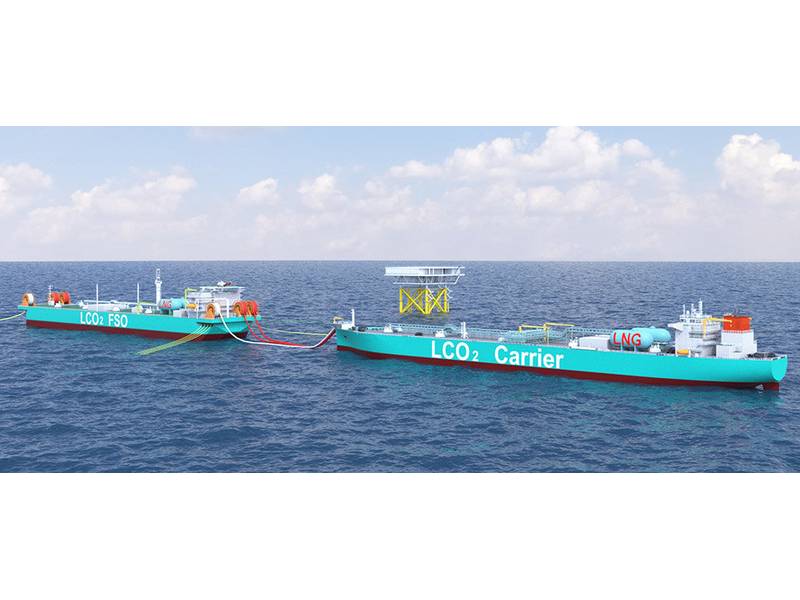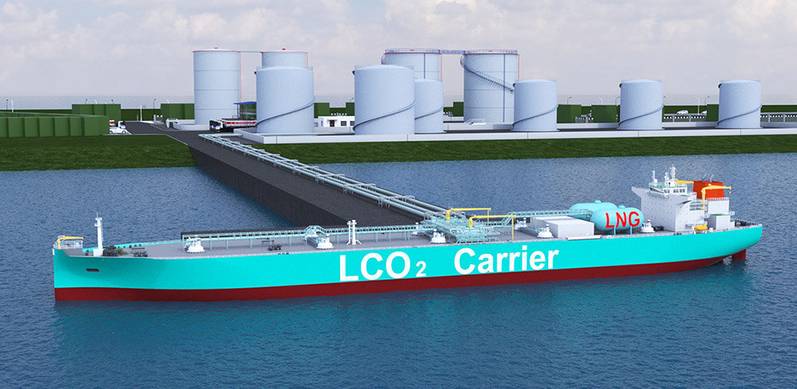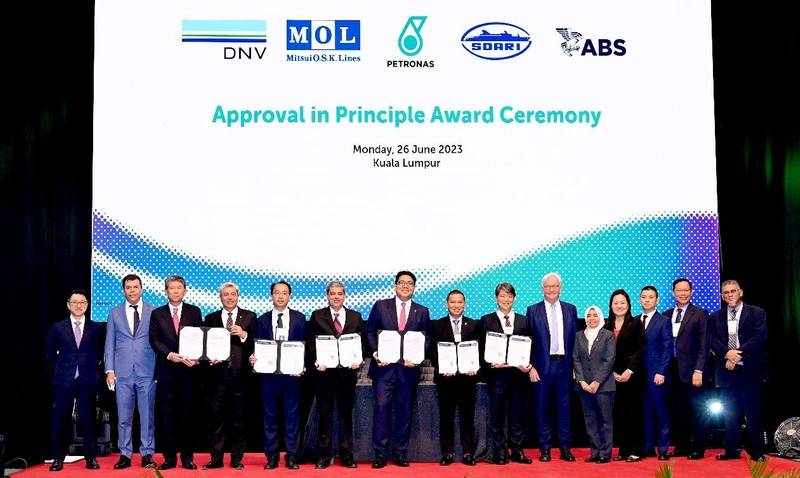Mitsui OSK Gets AiP for Liquefied CO2 Vessel, Floating Storage Unit
Japanese shipping company Mitsui O.S.K Lines (MOL) 9104.T has received in-principle approvals for a liquefied CO2 vessel and a floating storage and offloading unit (FSO) from the American Bureau of Shipping, its Chief Executive Takeshi Hashimoto said on Wednesday.
The vessel and the FSO were developed by the company along with Malaysia's state-run oil company Petronas and Shanghai Merchant Ship Design and Research Institute, Hashimoto said in a statement.

The statement gave no further details on the equipment or when and where it could be deployed.
Petronas and MOL began exploring business opportunities in liquefied carbon dioxide (CO2) shipping in Asia Pacific and Oceania in February last year.

Liquefied CO2 transportation helps connect carbon capture, utilization and storage (CCUS) sites safely and efficiently over long distances where pipelines are not economically viable.
CCUS technology removes CO2 emissions from the atmosphere and stores them underground, and Japan considers it crucial to reduce emissions to meet its 2050 goal of achieving carbon neutrality.
Some of the captured CO2 can also potentially be used in a range of industrial applications.
MOL, which received in-principle approval for the liquefied CO2 vessel from Norwegian registrar DNV, said it would continue to work with Petronas to build a diverse CCUS supply chain.

(Reuters - Reporting by Sudarshan Varadhan; Editing by Kim Coghill)
